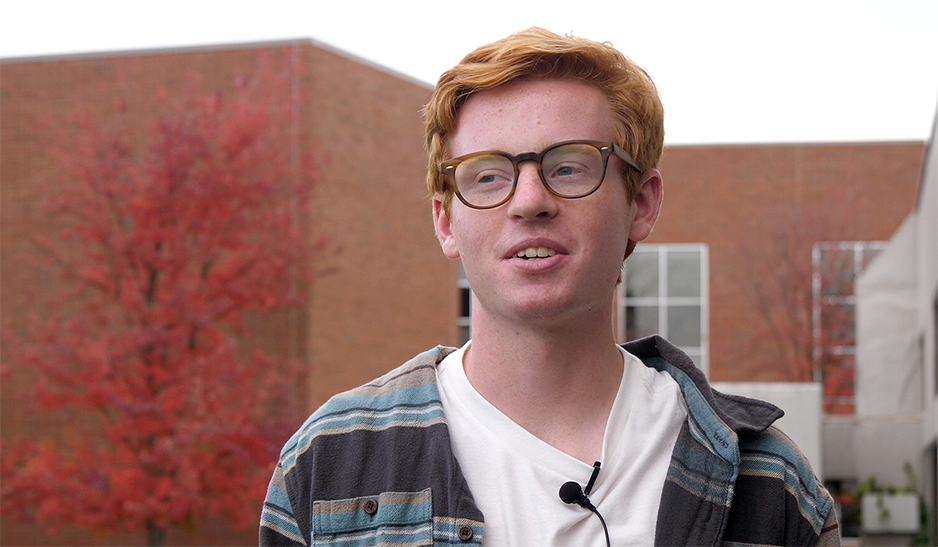We are continuing our series introducing you to the Temple Ambler Field Station Research Interns as they share insights into their research and their experiences on campus.
Meet Jack Brownfield, a freshman double majoring in Ecology, Evolution and Biodiversity in the College of Science and Technology and Psychology in the College of Liberal Arts. View his profile video here.
Brownfield said he was drawn to Temple by the broad diversity of research taking place at the university.
“My goal in the future is to go into academic research. Temple is an R1 research university with so many labs and a whole lot of biology research going on. There were so many possibilities for me to choose from,” he said. “You see these research results published everywhere; you see people talking about it but being able to be a part of that process is really rewarding.”
He joined the Temple Ambler Field Station “because they have a field research element that definitely was of interest to me,” Brownfield said. “I really liked that the internship prioritized being able to do my own independent research alongside the overarching research of the Field Station. That gave me the chance to pursue research that was I personally interested in.”
According to Brownfield, the Field Station Research Interns have been engaged in group projects within the Temple Forest Observatory at the Ambler Campus.
“We’re studying the recovery of the trees after the 2021 tornado and how they are growing and the saplings as they are coming back. We’re capturing seeds and taking water samples and basically trying to see how this forest is recovering from this huge natural disaster,” he said. “My favorite memory so far is definitely getting to do field research with my advisor and some of the other interns because we basically just get to go into the forest walking across logs, jumping across creeks and take it all in — I’ve had a lot of fun with that.”
Brownfield’s personal Field Station project focuses on the bodies of water within the Temple Forest Observatory, he said.
“After the tornado, pools, almost like tide pools called ephemeral pools, formed in the forest. They were filled with freshwater invertebrates from the nearby creek,” he said. “I’m looking at how each of those little pools acts as its own ecosystem and how the populations of different organisms rise and fall in response to each other.
Ecology, evolution and biology are fields “that can make a huge difference because they allow us to study how the organisms of this world interact with each other and especially with work like what is going on in the Field Station, how they respond to natural disasters,” Brownfield said.
“If we can understand that we can predict impacts of climate change and how we can start to mitigate those effects,” he said. “I think there are a ton of benefits to getting hands-on experience like this. From a career perspective, being able to say I’ve been in a lab, I’ve done field research, I’ve done my own independent research, is incredibly valuable. It’s also cool just to see how the science is done.”
Students gain advanced training by engaging in hands-on research internships that bring alive the excitement of science through an inquiry-based experience. Student interns work alongside researchers in the field to support ongoing projects and can develop investigations of their own.
Students interested in becoming a Field Station Research Intern, should reach out to the Temple Ambler Field Station at fieldstation@temple.edu with their name, why they are interested in working with the Field Station, current transcripts, and current resumé.
Learn more about the Temple Ambler Field Station at https://ambler.temple.edu/fieldstation.

